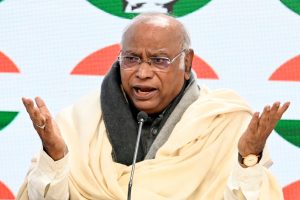Seventy-five years after the end of the Second World War and the recent celebration of VEDay, the world needs an effectual United Nations more than ever. The UN Secretary-General, António Guterres’ appeal for a global ceasefire amidst the coronavirus pandemic might, on the face of it, signal the end of a renewed clash of shields.
Yet beyond that obvious metaphor must lie the urgency of international cooperation not the least because what they call an invisible enemy has confronted the world, which ever since last December has been groping in search of a scientific prognosis behind its hideous spread.
Comparisons are odious when not wholly inappropriate; there aren’t many inspirational leaders like Franklin D Roosevelt in this day and age.
But his legacy ~ the UN and its many agencies and the Charter ~ remains a vital resource for effective international cooperation in fighting global threats.
The praise for the World Health Organization in China and the robust debunking in the United States must seem to be of lesser moment in the overall construct. Donald Trump’s attempt to blame an admittedly imperfect WHO for his Covid failures is the latest manifestation of a wider hatred of the multilateralism embodied in the UN.
Regretfully, the UN has not been more effectively used and supported in the present crisis. “Covid-19 is the greatest test we have faced together since the formation of the United Nations,” has been the UN Secretary-General’s assessment. “This human crisis demands coordinated, inclusive and innovative action from the leading economies.”
Yet a lack of leadership and differing national approaches had helped spread the virus, he said.
He has drawn a link between Covid-19 and the world entity as no other leader has had the nerve to try.
Not that the UN is not involved in the struggle against the catastrophe, one that has been rated as far worse than the Second World War.
The comity of nations must give it to the world body that it has put in place a multipartner Covid-19 “response and recovery” trust fund. Agencies such as the World Food Programme and Unicef are on the frontline.
Guterres is also showing a lead. He has warned of increasing Covidrelated human rights abuses and a “tsunami of hate and xenophobia, scapegoating and scaremongering” around the world.
The fact remains that for far too long, governments have ignored, circumvented or undermined the UN. In the net, its importance has been denuded, as evidenced in the prevarication that has marked its handling of such storm-centres as Libya and Syria.
But whereas in international conflagrations, humanity has confronted humanity, in 2020 it is an invisible enemy that confronts humanity. The raging crisis has underscored the irrelevance of the Security Council, verily the guardian of the Charter. The Council fiddles despite Mr Guterres’ caveat that the pandemic poses a clear threat to international peace and security.
Last week it failed yet again to agree to a global ceasefire to help fight Covid-19. An effective and well-funded UN, as Roosevelt had once envisaged, is direly imperative.










